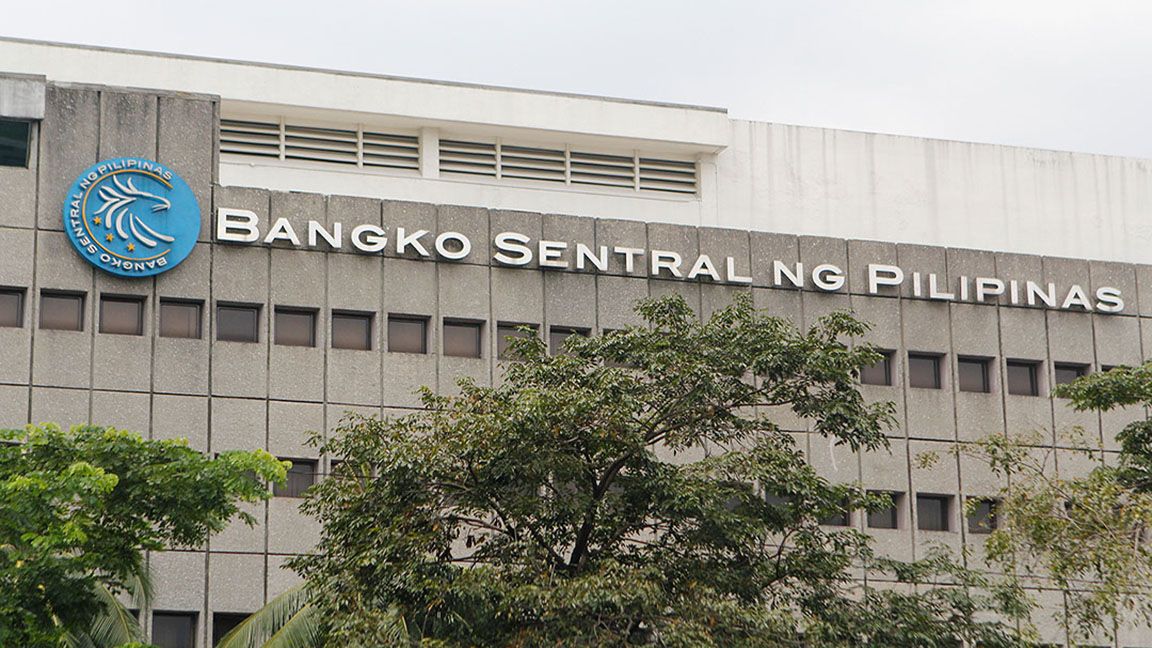Economists of some private banks are conflicted as to whether the Bangko Sentral should be more aggressive in its interest rate policies to curb inflation, or not.
With inflation expected to hit 5 percent this year, bankers are asking the Bangko Sentral ng Pilipinas to use more aggressive rate hikes to curb inflation.
On June 23, the BSP raised its benchmark rate by another 25 basis points (bps), bringing it to 2.50 percent. Interest rates on the overnight deposit and lending facilities were also raised by 25 bps to 2 and 3 percent, respectively.
“A more aggressive stance from BSP may help allay concerns about runaway inflation expectations. Monetary policy adjustments operate with a lag and thus we believe front-loaded action would be more beneficial than gradual rate increases,” ING Bank N.V. Manila Senior Economist Nicholas Antonio T. Mapa told Business World.
The BSP can also help combat demand-side pressures and mitigate the impact from second-round effects such as wage and transport fare hikes, he added.
“Lastly, an aggressive rate hike could help calm frayed nerves and mitigate inflation expectations,” Mapa said.
Fitch sees 3.25 percent by end 2022
Fitch Solutions said it expects the BSP to raise its policy rate to 3.25 percent by the end of the year, up from its previous forecast of 2.75 percent.
“Over the coming months, mounting inflationary pressure and rising global interest rates will prompt the BSP to adopt a more hawkish stance in our view,” it said on Monday.
Fitch Solutions also noted the “ongoing robust economic recovery,” as seen in the first quarter, gives the BSP more room to tighten its monetary policy.
Inflation
Inflation averaged 4.1 percent in the first five months of the year, exceeding the BSP’s 2-4 percent target after quickening to a three-and-a-half-year high of 5.4 percent in May.
The BSP raised its average inflation forecast for this year to 5 percent, from 4.6 percent previously, to reflect the continued rise in oil and commodity prices.
For 2023, the inflation forecast was adjusted to 4.2 percent from 3.9 percent previously. Average inflation is expected to decline to 3.3 percent in 2024.
Security Bank Corp. Chief Economist Robert Dan J. Roces said he now sees inflation averaging higher, around 5.1 percent, this year due to the wage hikes, sugar shortage and more expensive rice production.
“So faster inflation, and non-aggressive response, authorities may be seeing a long transitory inflation view and an aggressive fiscal response is underway. There also seems to be a bias for a weak PHP (Philippine peso),” Roces said.
“So there is scope for more aggressive hikes should the inflation situation get more tenuous,” he added.
Fitch Solutions also revised its inflation forecast to 5 percent this year, from 4.5 percent previously, due to supply-side problems and higher commodity prices.
“Over the coming months, we expect inflation to remain elevated relative to historical levels owing to high energy and grains prices as well as a weaker Philippine peso exchange rate, which will drive imported inflation,” Fitch Solutions said.
Peso-dollar rate
The local unit closed at P54.78 against the US dollar on Monday, gaining 20.5 centavos from its P54.985 finish on Friday, data from the Bankers Association of the Philippines showed.
During Monday’s trading, the peso sank to as low as P55.15, the weakest since Oct. 27, 2005.
“The tightening of global monetary conditions has exerted significant downside pressure on Philippine peso and this will also likely prompt the BSP to hike interest rates to prevent the currency from weakening too much,” Fitch Solutions said.
The peso’s decline in the past weeks was due to a stronger dollar because of a more aggressive tightening by the US Federal Reserve.
“As long as market feels assured that the (Federal Open Market Committee) will continue tightening more aggressively than the BSP, PHP depreciation pressure will likely persist to keep imported inflation, not just from food, elevated,” Bank of the Philippine Islands (BPI) Lead Economist Emilio S. Neri, Jr. said.
No need to be aggressive
UnionBank of the Philippines, Inc. Chief Economist Ruben Carlo O. Asuncion said the BSP may not need to be aggressive at this time.
“At a 3.5 percent (minimum expectation), the BSP is still within our expectation and may not need to be “more aggressive” (not also to take its sweet time), but to stay the course to adhere to its main mandate of price stability,” Asuncion said.
The BSP will have its next policy review on Aug. 18.
Tags: #BSP, #conflictingviews, #interestrates, #inflation, #economy
